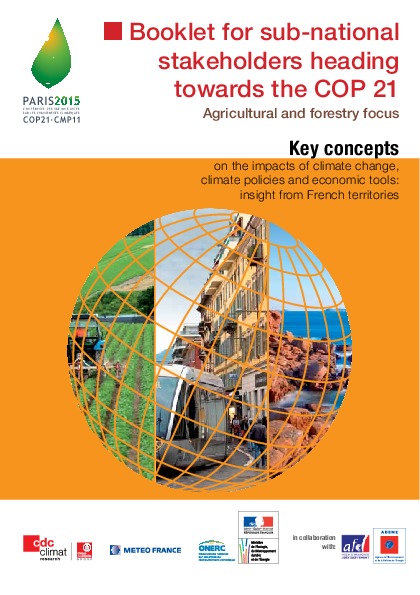Booklet for sub-national stakeholders heading towards the COP 21 Agricultural and forestry focus
At a time when the international community is striving to construct an overall framework for the future fight against climate change, regional actors have
already been taking measures for several years to mitigate their greenhouse gas emissions and adapt to the changing climate. The purpose of this booklet is to present the situation, tools and actions of French local authorities in this field. It will attempt to offer open, direct and informative access to the most up-to-date knowledge on climate change to encourage and facilitate the continuation of these approaches. It has been jointly produced by I4CE, ONERC and Météo-France, in partnership with ADEME and AFD which have also contributed to developing its content. DGEC and research laboratories such as CIRED and the CSTB also contributed with their expertise.
This booklet is aimed at local authorities, as well as public and private actors working alongside them, and addresses four themes identified by colour:
• The impacts of climate change
• Climate policies at a global, European and French level
• Economic tools available to local authorities
• Agricultural and forestry focus
